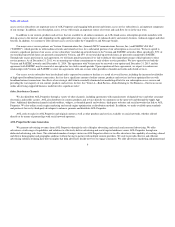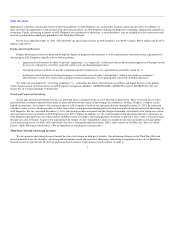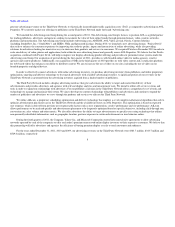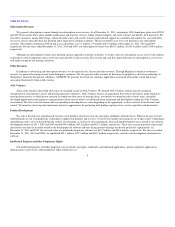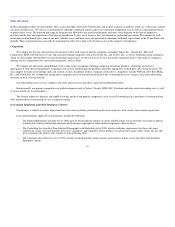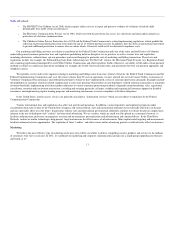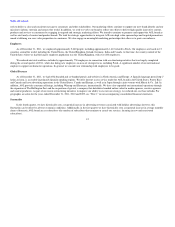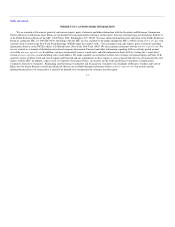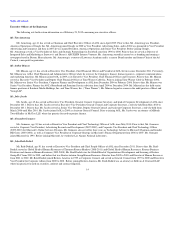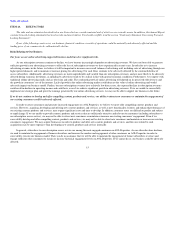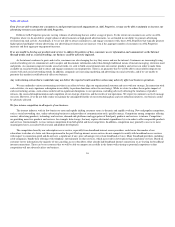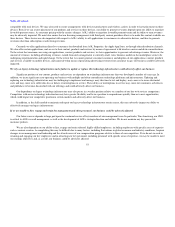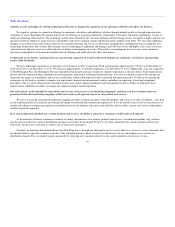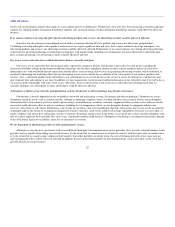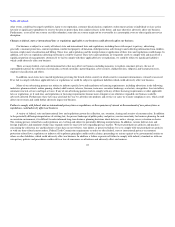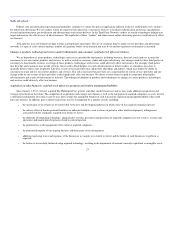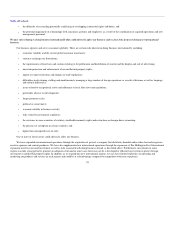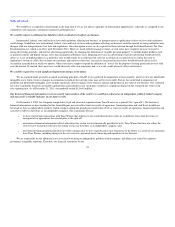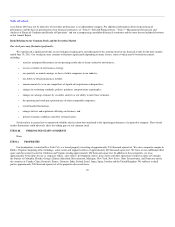America Online 2011 Annual Report Download - page 20
Download and view the complete annual report
Please find page 20 of the 2011 America Online annual report below. You can navigate through the pages in the report by either clicking on the pages listed below, or by using the keyword search tool below to find specific information within the annual report.
Table of Contents
Even if we are able to attract new consumers to, and generate increased engagement on, AOL Properties, we may not be able to maintain or increase our
advertising revenues associated with AOL Properties.
Different AOL Properties generate varying volumes of advertising that are sold at a range of prices. To the extent our consumers are active on AOL
Properties where we do not deliver a high volume of advertisements or high-priced advertisements, we are limited in our ability to generate advertising
revenues from such activity. Accordingly, if we are not able to attract consumers to, and engage consumers with, those AOL Properties that typically generate
higher-priced and higher-volume advertising, our advertising revenues may not increase even if the aggregate number of consumers on AOL Properties
increases and their aggregate engagement increases.
If we are unable to develop our products and services to address the patterns of how consumers access information and communicate on the Internet
through media such as social networking, our business could be adversely impacted.
As the internet continues to grow and evolve, consumers are also changing the way they access and use the internet. Consumers are increasingly using
social networking sites to communicate and to acquire and disseminate information rather than through traditional means of instant messaging, electronic mail
and portals. As consumers migrate towards social networks, we seek to build social elements into our content, products and services in order to make them
available on social networks and to attract and engage consumers on our properties. There is no guarantee that we will be able to successfully integrate our
content with such social networking trends. In addition, companies are increasing marketing and advertising on social networks, and if we are unable to
penetrate this market it could adversely affect our business.
Any restructuring actions that we undertake may not deliver the expected results and these actions may adversely affect our business operations.
We may undertake various restructuring activities in an effort to better align our organizational structure and costs with our strategy. In connection with
such activities, we may experience a disruption in our ability to perform functions critical to our strategy. While we strive to reduce the negative impact of
such restructuring actions, such actions could result in significant disruptions to our operations, including adversely affecting the timeliness of product
releases, the successful implementation and completion of our strategic objectives and the results of our operations. We expect to continue to actively manage
our costs. However, if we do not fully realize or maintain the anticipated benefits of our restructuring plans and cost reduction initiatives, our business could
be adversely affected.
We face intense competition in all aspects of our business.
The internet industry, with its low barriers to entry and rapidly shifting consumer tastes, is dynamic and rapidly evolving. New and popular competitors,
such as social networking sites, online advertising businesses and providers of communication tools, quickly emerge. Competition among companies offering
content, advertising products, technology and services, demand-side platforms and aggregators of third-party products and services, is intense. Competitors
are providing more free products and services, for example, data storage, that may require substantial expenditures by us in order to offer comparable products
and services. Internationally, we face intense competition from both global and local competitors. In addition, competition may generally cause us to incur
unanticipated costs associated with research and product development.
The competition faced by our subscription access service, especially from broadband internet access providers, could cause the number of our
subscribers to decline at a faster rate than experienced in the past. Dial-up internet access services do not compete favorably with broadband access services
with respect to connection speed and do not have a significant, if any, price advantage over certain broadband services. Many broadband providers, including
cable companies, bundle their offerings with telephone, entertainment or other services, which may result in lower prices than stand-alone services. Based on
customer survey information, the majority of our canceling access subscribers either already had broadband internet connections or are leaving for broadband
internet connections. There can be no assurance that we will be able to compete successfully in the future with existing or potential competitors or that
competition will not adversely affect our business.
16


